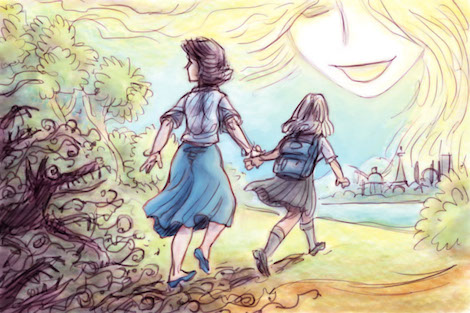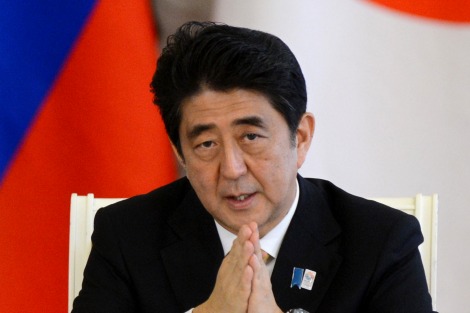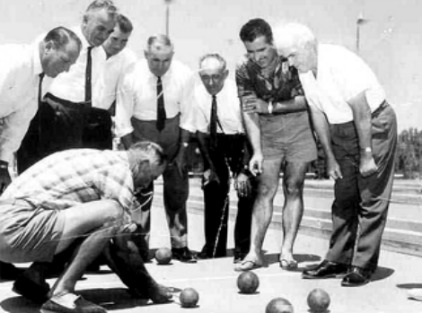Keywords: Relief
There are more than 200 results, only the first 200 are displayed here.
-

ARTS AND CULTURE
- Catherine Marshall
- 22 August 2014
8 Comments
My daughter's depression is a dark and inhospitable valley in which she has lost her way, but it is also a mirror held up before me, forcing me to acknowledge the deep troughs into which I myself have fallen, and to recognise the needlessness of having clawed myself out of them alone.
READ MORE 
-

AUSTRALIA
- Frank Brennan
- 23 July 2014
1 Comment
'Undoubtedly there are many challenges confronting our elected leaders in dealing with violent crime and with pathological sex offenders. But long-term sustainable solutions must be based on respect for judicial independence and for the role of the legal profession.' Frank Brennan addresses the Queensland Council for Civil Liberties at The Irish Club, 175 Elizabeth St, Brisbane 8 July 2014.
READ MORE
-

AUSTRALIA
We’re in Ramadan, a time when you’re supposed to be nicer than you normally are. In recent times my mob hasn’t received much niceness from certain quarters. Some of the nasties have been inspired by hysteria related to a proposal to build a mosque in Bendigo. I’m not quite sure what Bendigo’s largely university-based Muslim community did to deserve so much vitriol.
READ MORE 
-

AUSTRALIA
- Walter Hamilton
- 09 July 2014
5 Comments
Japanese Prime Minister Shinzo Abe's perspective on modern history would offend most Australians. He sits in the camp that believes Japan fought a defensive war. Abe and Tony Abbott will adopt a series of measures for strengthening joint military exercises, enhance people-to-people exchanges, formally sign a 'free trade' agreement, and much more. A full-course meal that Australians would be advised to chew over well.
READ MORE 
-

AUSTRALIA
A week ago I get a phone call from the CEO of Northern Territory Vinnies, for whom I am council secretary. Could I come in and sign a letter about emergency relief before the next council meeting? 'Of course.' The letter is produced and, being conscientious, I actually read it. The Federal Government is offering Darwin Vinnies additional ER funds for the rest of the year. And I stop. I am not comfortable.
READ MORE 
-

ARTS AND CULTURE
- Gillian Bouras
- 25 June 2014
9 Comments
Ignoring the Greek tradition of family names, my son and his Cretan wife called their son Orestes. The name means 'he who can move mountains', and it is almost as if some instinct informed the young parents of 'naming power', and of the possibility that such power might be needed. The first mountain resembled Everest: the operation on the day of his birth, which was necessary to correct a malformed oesophagus.
READ MORE 
-

ENVIRONMENT
- Neil Ormerod
- 06 June 2014
13 Comments
During Abbott's forthcoming visit to Obama he will find a president not only willing to take strong action in relation to climate change, but doing so with the public support of the US Catholic bishops. This is not a situation he will find comfortable given that in the Australian context he has always previously been able to count on the support of Cardinal Pell to muddy the waters on climate change.
READ MORE 
-

ARTS AND CULTURE
- Shane McCauley
- 20 May 2014
2 Comments
Muffled exclamations send Italian syllables into the far pale blue... the small cannon balls bounce across the peaceful green... the men huddle convene for a verdict.
READ MORE 
-

ARTS AND CULTURE
- Barry Gittins and Jen Vuk
- 16 May 2014
2 Comments
Fraser was a ruthless, conservative political animal who today is one of our most prominent human rights champions. The elder statesman is quite the angry young man in print. He delights in telegraphing his haymakers and following through with a well-placed elbow or two. Put bluntly, Fraser suggests we need to shed our lackey status. 'We need the United States for defence,' he argues, 'but we only need defence because of the United States.'
READ MORE 
-

AUSTRALIA
The Budget does not signal an end to the 'age of entitlement', as there are still plenty of beneficiaries of government expenditure or foregone revenue. You don't need to be an economist to see that collectively the Budget measures will impact negatively on the income levels of the poor and disadvantaged. The discussion now must be who will pick up the pieces left behind by Government in developing a system with obvious gaps.
READ MORE 
-

ECONOMICS
In politics, one should never opt for a balanced and thoughtful description of the truth when wild exaggerations will do. Especially when you want to take from the poor and give to, if not exactly the rich, at least the investor class. The dire pronouncements from the Abbott Government in response to the Commission of Audit's 86 recommendations reflect not only the PM's relentless negativity, but also more than a whiff of class war.
READ MORE 
-

RELIGION
- Neil Ormerod
- 03 April 2014
21 Comments
Damage was done to the reputations of Pell's secretary Dr Michael Casey, and to the solicitors from the his chosen legal team Coors, who would have heard clearly the warning of Justice McClellan that saying they were following their client's instructions would be no defence. There is the damage done to the Australian Church as a whole, and, of course, the damge to Pell himself. This is not how he wanted his reign in Sydney to end.
READ MORE 